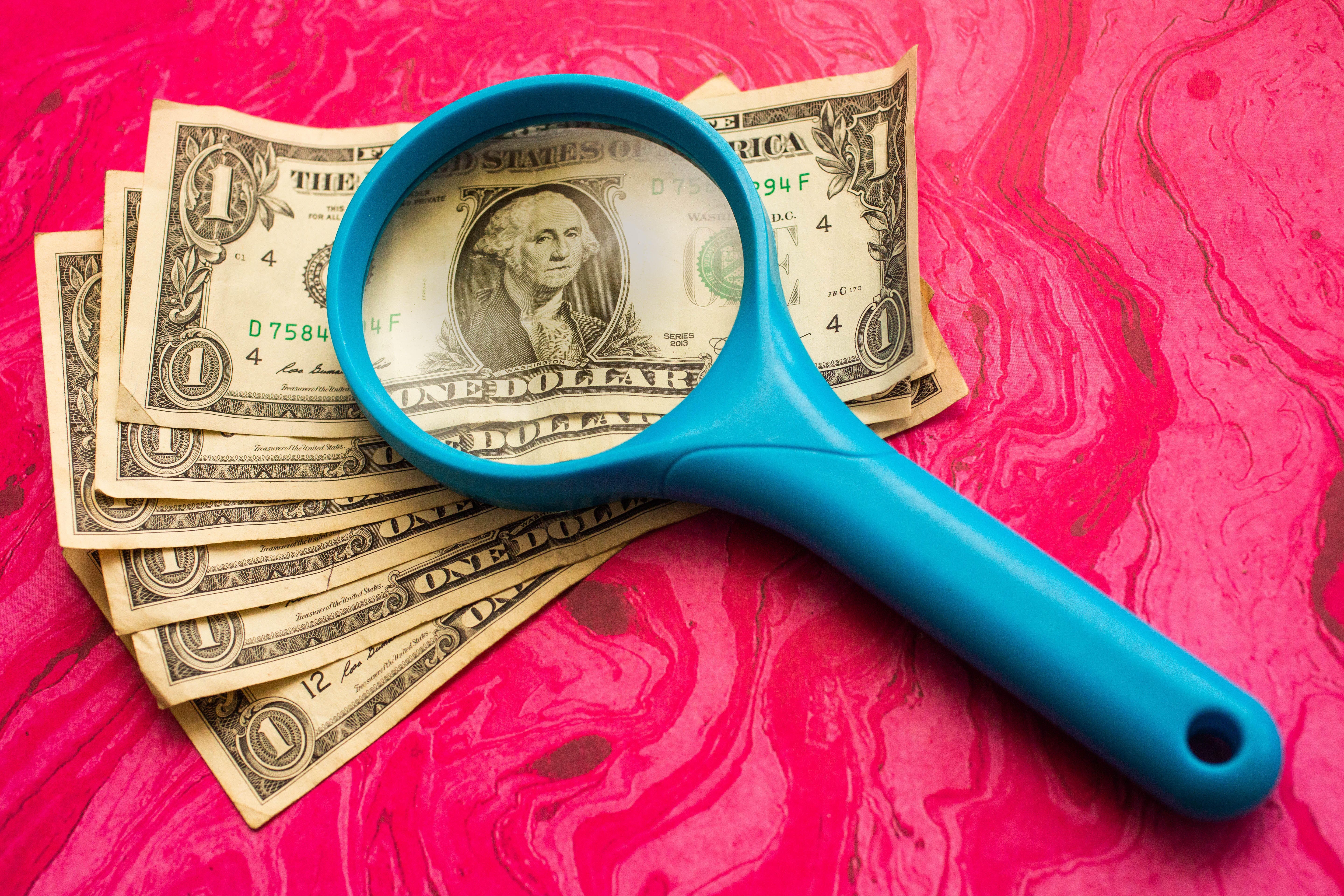
Some are growing tired of checking their mailbox for the most recent economic impact payment.
Angela Lang/CNETLast week, the IRS sent out 1.8 million more stimulus payments, some by mail and others by direct deposit. That means nearly 167 million payments have gone out under the American Rescue Plan since it became law in March. But what if your check is still late? It could be there are issues with your payment, such as wrong direct deposit details or a delay in mail delivery. There might be other issues if you're a recipient of SSI, SSDI or veterans benefits.
Or perhaps you received a letter from the IRS saying that your $1,400 payment was sent but the check never arrived. Then what? One thing is for sure: The IRS doesn't want you to call with questions about a missing stimulus check. We'll explain what you can do instead, including requesting a recovery rebate credit on your 2020 tax return if you filed a tax extension, or asking for a payment trace.
We can also share information on a potential fourth stimulus check, student debt forgiveness and the deal with states canceling unemployment benefits. Plus, here's how you can get more money from the child tax credit if you have kids (even if you have a baby born in 2021) and how to calculate your total. This story was recently updated.
Track your stimulus payment with the IRS Get My Payment tool
For the third stimulus check: It's worth visiting the IRS' online portal designed to track the status of your 2021 payment. Generally, it should tell you when your check will be processed and how you'll receive it: for example, as a paper check in the mail. If the Get My Payment tool doesn't give you information you can understand or says your check is on the way and you haven't received it, you may need to eventually request a payment trace or file for a recovery rebate credit.
For the first or second payment: If you can't find the letter sent by the IRS, you'll need to create an online profile with the IRS to see your status. For any problems, you may need to issue a payment trace or file for a recovery rebate credit, even if you don't normally submit a tax return. (May 17 was the last day to file your taxes without an extension.) Here's more information about finding the amount of your first and second payments.
Why does it mean that the IRS needs 'more information'?
If the Get My Payment tool gave you a payment date but you still haven't received your money, the IRS may need more information. Check the Get My Payment tool again and if it reports "Need More Information," this could indicate that your check has been returned because the post office was unable to deliver it, an IRS representative told CNET. Here are more details on how the tracker tool works and what the messages mean.
Why does it say that the status of my payment is 'not available'?
It's normal for the Get My Payment tool to give you a message that says "Payment Status Not Available" until the payment is scheduled to be issued, according to the IRS. This message doesn't mean you're not eligible or that you won't receive a payment -- you'll likely just have to wait.
What if there's a direct deposit error with your bank account?
The IRS tracking tool for the third stimulus check doesn't allow you to add direct deposit information this time unless the IRS can't deliver your payment. So if you have a problem, what do you do? Your check may have bounced back to the IRS if the agency tried to send your payment to a now-closed bank account or to a temporary prepaid debit card a tax preparer set up for you. If your payment was returned to the IRS, the agency will mail your check to the current address it has on file for you. If that check is returned, then the IRS will let you enter your banking information in the Get My Payment tool, the IRS said.
First, we suggest you call your bank or tax preparer -- it never hurts to cover all your bases to confirm that an attempt was made to deposit money into a closed account or debit card.
Unfortunately, you'll need to wait and monitor the Get My Payment tracker to keep tabs on your check delivery. We also recommend signing up for a free service to track your check to your mailbox.
Could your stimulus payment have been redirected to cover debt?
If you owe child support or other debts, your first check was seized to cover those debts. The third check is subject to being taken by private debt collectors, but not the state or federal government. The same goes for the second payment, too, if you're claiming missing money in a recovery rebate credit. You may receive a notice from the Bureau of the Fiscal Service or your bank if either of these scenarios happens.
In the case of the third check, we recommend calling your bank to confirm the garnishment request from creditors and ask for details about how long you have to file a request with a local court to stop the garnishment. If you think money has already been mistakenly seized from the first two checks, you can file a recovery rebate credit as part of your 2020 tax return -- but only if you filed a tax extension.

You can track down your stimulus payment without picking up the phone.
Sarah Tew/CNETWhat if one of your stimulus checks never arrived?
About 15 days after the IRS sends out your check, you should receive a letter from the agency confirming the payment. When the first round of stimulus checks went out last year, that letter included two hotline phone numbers because thousands of agents were available to help. But with the second and third rounds of checks, the IRS changed its tune, and these phone numbers may be disconnected.
Here are common scenarios that might indicate you need to look into your stimulus payment:
You should also confirm you're qualified to get the stimulus payment, since not everyone who received a previous check is qualified this time. If you think it's time to take action, read for more options.
Should you file a payment trace for missing money?
You can request an IRS payment trace if you received the confirmation letter from the IRS that your payment was sent (also called Notice 1444), or if the Get My Payment tool shows that your payment was issued but you have not received it within certain time frames. This is the case for all three checks. Check out our guide to requesting an IRS Payment Trace here.

Don't miss out on claiming your missing stimulus money.
Sarah Tew/CNETHow can you get missing money from the previous stimulus checks?
If you're certain you meet the qualifications to receive the first or second stimulus check, what to do next depends on your situation.
If you never got your money or a confirmation letter from the IRS that your payment was sent, you needed to file for the money on your tax return this year. We've got full instructions for how to file for your recovery rebate credit here, but basically, you'll use the 2020 Form 1040 or Form 1040-SR to claim a catch-up payment. However, the last day to file your taxes has passed, so this will only work for those who filed a tax extension.
The tax return instructions include a worksheet to figure out the amount of any recovery rebate credit for which you're eligible, according to the IRS. If you're part of a group that doesn't usually file taxes (such as older adults, retirees, SSDI or SSI recipients and individuals with adjusted gross incomes of less than $12,200), you'll still need to file this year. (We have instructions for nonfilers who need to claim stimulus money on their taxes here.) You should also save your IRS letter -- Notice 1444 Your Economic Impact Payment -- with your 2020 tax records, as you'll need it to file the claim.
You can also file for a Recovery Rebate Credit if you didn't receive the correct amount of money for your child dependents in your first or second check. The same goes for parents of 2020 babies (and next year, parents of 2021 babies will similarly be able to file).
If your third check is less than expected, what about a 'plus-up' payment from the IRS?
You can estimate how much money the IRS owes your household for the third stimulus check. Just make sure to triple-check that you meet the qualifications, including the income limits.
Because of the overlap with tax season 2020, many people may receive some, but not all, of their allotted amount. If your income changed in 2020, in some cases, the IRS may owe you more money than you received if the income figure used to calculate your payment from your tax returns in 2018 or 2019 is less in 2020. Likewise, if you now have a new dependent, such as a new baby, you may be owed more money.
The IRS is automatically sending "plus-up payments" to make up the difference. If you don't get one, you may need to claim the missing money another way later in 2021 or even in 2022, since tax season is officially over now.
Will you have to file another form with the IRS?
As was the case with the first and second check, if you filed a 2018, 2019 or 2020 tax return or receive government benefits, the IRS should automatically send your third check without you having to do anything.
If, however, you're a nonfiler, a US citizen or permanent resident, had a gross income in 2019 under $12,200 -- or $24,400 as a married couple -- and didn't file a return for 2018 or 2019, you may need to give the IRS a bit of information before it can process your payment. Since the IRS' Non-Filers tool is now closed, you may need to file for that money on a 2021 tax return (in 2022) in the form of a recovery rebate credit, described above.
Here's more information about who should file an amended tax form and who shouldn't.

Receiving your stimulus check money isn't always easy.
Sarah Tew/CNETWhat if you lost your EIP debit card or it was stolen?
At least 5 million people will receive their third stimulus check on a prepaid debit card called the Economic Impact Payment Card, instead of a paper check. For the third payment, the EIP card arrives in a white envelope sent from "Economic Impact Payment Card." The letter will have a US Department of the Treasury seal.
The card has the Visa name on the front and the issuing bank, MetaBank®, N.A., on the back. Information included with the EIP Card explains that this is your Economic Impact Payment. If you receive an EIP Card, visit EIPcard.com for more information.
If you've misplaced or thrown away your card, the EIP card service has an FAQ on what to do if your card is lost or stolen. You can also call 800-240-8100 to request a replacement. It's free, according to a spokesperson for the Treasury Department. To request a new card, press option 2 when prompted.
However, the EIP card website says, "Your Card will be deactivated to prevent anyone from using it and a new replacement Card will be ordered. Fees may apply." We recommend calling the above number for a lost or stolen card and speaking to a representative. If you may have lost or thrown away a paper check, read the mail fraud section below.
What if your stimulus payment was taken in a scam?
Though it's uncommon, you may believe you've been scammed out of your payment or had it stolen. The Federal Trade Commission has a website where you can report a stolen stimulus check. If you're worried about theft, you can sign up for a free USPS service that will send you a picture of every piece of mail coming your way -- including your stimulus payment.
What do SSI, SSDI and veteran beneficiaries have to know?
The IRS began sending out stimulus checks for Social Security beneficiaries, including those who are part of the SSI and SSDI programs, on April 7. It began sending payments to people who receive veteran benefits and don't typically file taxes on April 14. If you're part of one of these groups and haven't gotten your check yet, it may be on the way soon.
The Social Security Administration has also advised people not to contact the SSA about problems. It's possible you may need to use one of the strategies above, depending on what the trouble is.
Additional details you may need to know
Here are some additional things you can try to resolve your stimulus check problems, including if you think your money has been garnished. Here's everything you should know about the third stimulus check, the expanded child tax credit for 2021 and other ways the most recent stimulus package can benefit you.
"Here" - Google News
May 31, 2021 at 02:00PM
https://ift.tt/3yT2tlp
Still no $1,400 stimulus check? Here's how to track down your payment - CNET
"Here" - Google News
https://ift.tt/39D7kKR
Shoes Man Tutorial
Pos News Update
Meme Update
Korean Entertainment News
Japan News Update

:no_upscale()/cdn.vox-cdn.com/uploads/chorus_asset/file/25244079/4.png)
No comments:
Post a Comment